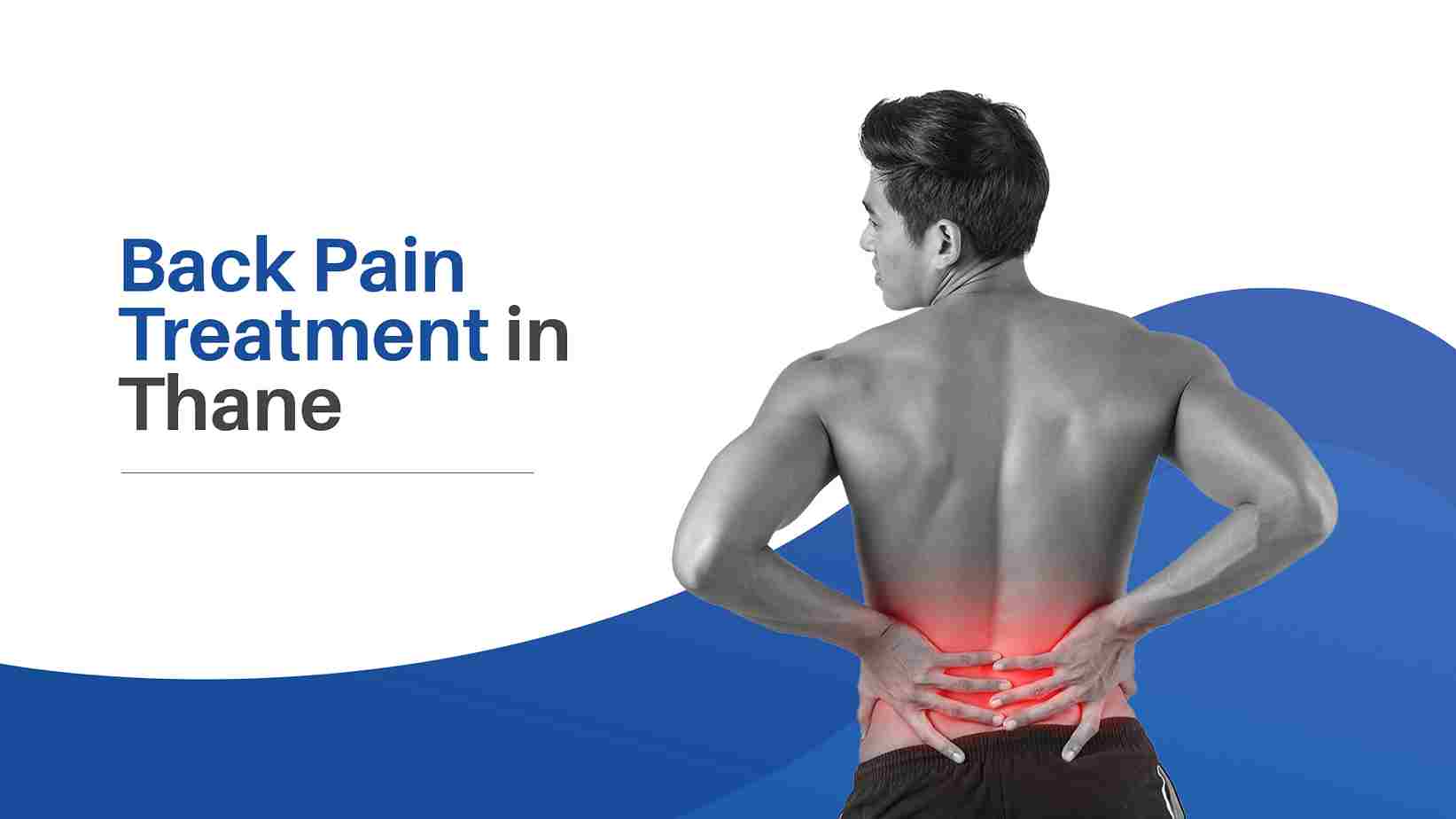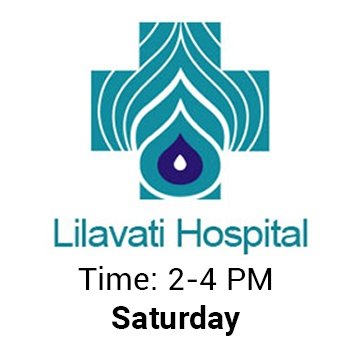


Advance Spine Clinic
in Heart of Thane
16000+ Patients
4000+ Surgeries
Back Pain Treatment IN THANE : Comprehensive Care for Lasting Relief
If you’re seeking Back Pain Treatment in Thane , look no further than The Spine Clinic. Our team of dedicated Back Pain Specialist Doctors in Thane, is committed to providing comprehensive care and treatment. Whether you’re dealing with acute or chronic back pain, our specialised clinic offers advanced diagnostics, personalised treatment plans, and cutting-edge therapies. As the leading back pain specialists in Thane, we are here to help you regain mobility, reduce pain, and improve your overall quality of life.
Back pain is a common condition characterised by discomfort or pain in the back area. It can range from mild to severe and may be caused by factors like muscle strains, herniated discs, arthritis, or injuries. Symptoms include dull, aching pain, stiffness, and muscle spasms. Treatment options include medication, physical therapy, and lifestyle changes. Regular exercise, such as strengthening exercises and stretching, can help manage and prevent back pain. Consulting a healthcare professional is advised for accurate diagnosis and personalised treatment.
MEET DR. PRIYANK PATEL
Dr Priyank M Patel is a Co-Founder and Director of the first integrated spine organization; We Are Spine and treats patients at premiere institutions across Mumbai.
He is dedicated to investigating, evaluating, treating and educating patients with conditions of the spine and the spinal cord using advanced, conservative and sometimes traditional techniques.
Learn about various spine conditions, symptoms and treatments through our website or visit us at our clinic for a personal consultation.

16000 +
Patients
4000+
Surgeries
7+
Surgeons Team
5*
Rating
Our Services
- Sciatica
- Slipped Disc
- Scoliosis
- Kyphosis
- Cervical Spondylosis
- Broken Neck & Back
- Spinal Cord Injury
- Spondylolisthesis
- Spinal Stenosis
- Osteoarthritis
- Tumor
- Syringgomylia
- Cauda Equina Syndrome
- Ankylosing Spondylitis
Plan Your visit
Make a Appointment
Send Med. Records
Working Hours





other locations
Lilavati Hospital
A-791, A-791, Bandra Reclamation Rd, General Arunkumar Vaidya Nagar, Bandra West, Mumbai, Maharashtra 400050
DOCTOR HOUSE
Cumbala Hill, Pedder Road, Mumbai, Maharashtra 400026
JUPITER HOSPITAL
Eastern Express Highway, Service Road,, Next To Viviana Mall, Thane West, Maharashtra 400601
KLS MEMORIAL HOSPITAL
Narvir Tanaji Malsure Marg, Navpada, Irla,, Vileparle West, Mumbai, Maharashtra 400056
BREACH CANDY HOSPITAL
Cumballa Hill, Bhulabai Desai Road, 60A, Mumbai, Maharashtra 400026
THE SPINE CLINIC
Shop no.1, Amrutraj, Gurukul road, panchpakhadi,, Thane west., Thane, Maharashtra 400602
Our Reviews
Types of Back Pain
- Acute Back Pain: Sudden and intense pain that lasts for a short period, usually caused by a specific injury or strain.
- Chronic Back Pain: Persistent pain that lasts for more than three months and can be caused by an underlying medical condition.
- Radicular Pain: Pain that radiates along the path of a nerve, often into the legs, caused by compression or irritation of the spinal nerves.
- Mechanical Back Pain: Pain resulting from the movement or position of the spine, such as muscle strains, herniated discs, or spinal joint dysfunction.
- Non-specific Back Pain: Pain without a clear identifiable cause, often related to muscle imbalances, poor posture, or sedentary lifestyle.
Causes of Back Pain
- Muscle or Ligament Strain: Overstretching or tearing of muscles or ligaments due to improper lifting, sudden movements, or poor posture.
- Herniated Disc: When the soft center of a spinal disc protrudes through the outer layer, irritating nearby nerves and causing pain.
- Degenerative Disc Disease: Natural wear and tear of the spinal discs over time, leading to pain, inflammation, and reduced mobility.
- Spinal Stenosis: Narrowing of the spinal canal, usually due to age-related changes, which can put pressure on the spinal cord or nerves.
- Arthritis: Inflammation of the joints, such as osteoarthritis or rheumatoid arthritis, can affect the spine and cause pain.
- Traumatic Injury: Accidents, falls, or sports-related injuries can damage the spine, leading to pain and discomfort.
Symptoms of Back Pain
- Dull, aching pain in the lower back that may radiate to the buttocks and legs.
- Stiffness and reduced flexibility in the back.
- Muscle spasms or cramping.
- Difficulty standing up straight or maintaining good posture.
- Sharp or shooting pain with certain movements or positions.
- Numbness, tingling, or weakness in the legs or feet (if nerve involvement).
Back Pain Treatment
- Pain Medications: Over-the-counter nonsteroidal anti-inflammatory drugs (NSAIDs) or prescription medications can help reduce pain and inflammation.
- Physical Therapy: Customised exercise programs, stretching, and manual therapies to improve strength, flexibility, and posture.
- Heat and Cold Therapy: Applying heat packs or cold compresses to the affected area can provide temporary pain relief and reduce inflammation.
- Epidural Steroid Injections: In severe cases, injections of anti-inflammatory medications can directly target the source of pain and reduce inflammation.
- Surgery: In rare cases where conservative treatments fail, surgery may be considered to address underlying structural issues or nerve compression.
Risk Factors of Back Pain
- Age: Back pain becomes more common as people age due to natural degeneration and wear and tear of the spine.
- Sedentary Lifestyle: Lack of regular exercise and prolonged sitting or standing can weaken the back muscles and contribute to pain.
- Obesity: Excess weight puts additional strain on the spine, increasing the risk of developing back pain.
- Poor Posture: Slouching, hunching over desks, or improper lifting techniques can strain the back and lead to pain.
- Smoking: Nicotine restricts blood flow to the spinal discs, impeding their ability to heal and increasing the risk of back pain.
Back Pain Exercises
- Low-Impact Aerobic Exercises: Walking, swimming, or cycling can help improve cardiovascular health and strengthen the back muscles.
- Core Strengthening Exercises: Planks, bridges, and abdominal exercises target the muscles that support the spine and promote stability.
- Stretching Exercises: Gentle stretches for the back, hamstrings, and hip flexors can help relieve tension and improve flexibility.
- Yoga or Pilates: These practices focus on strengthening the core, improving posture, and promoting overall body balance.
- Back Extensions: These exercises strengthen the muscles in the lower back and can help alleviate pain caused by muscle imbalances.
When it comes to addressing your back pain concerns, trust the expertise of our Back pain specialist clinic in Thane at The Spine Clinic. With their in-depth knowledge, advanced diagnostic capabilities, and comprehensive treatment options, you can be confident in receiving top-notch care for your back pain. We are committed to helping you find relief and improve your quality of life. Don’t let back pain hold you back – schedule an appointment with our renowned Back Pain Specialist Doctor Thane and Back bone surgeon in Mumbai at The Spine Clinic today. Your journey to a pain-free back starts here.
The Spine Clinic in Thane is dedicated to providing specialized care for spine patients. Our team of experienced staff, led by Dr. Priyank Patel, ensures that you receive the highest quality treatment for your spine-related concerns. Trust us as your go-to Orthopaedic Spine Doctor in Thane and the preferred Spine Clinic in Thane. Your spine health is in expert hands with Dr. Priyank Patel, the trusted Backbone Doctor in Thane.
The Spine Clinic, where your spine health is our top priority. Dr. Priyank Patel, renowned as a leading Spine Specialist Doctor in Mumbai and the Best Spine Surgeon in Mumbai, proudly heads our department in Thane. With a wealth of experience, Dr. Patel excels in managing acute and chronic spine conditions through medication, physiotherapy, or surgery.
fREQUENTLY ASKED QUESTIONS
Back pain can have various causes, including muscle strains, herniated discs, arthritis, poor posture, and underlying medical conditions. It can also be influenced by factors like a sedentary lifestyle, excess weight, and age-related changes in the spine.
There are a few things you can try at home to relieve back pain. Applying heat or cold packs to the affected area, practising gentle stretching exercises, maintaining good posture, and using over-the-counter pain medications can provide temporary relief. However, it’s important to consult with a healthcare professional for a proper diagnosis and long-term treatment plan.
It depends on the severity and cause of your back pain. In general, it’s recommended to avoid prolonged bed rest and instead engage in light activities and gentle exercises that don’t aggravate the pain. However, it’s crucial to strike a balance and not overexert yourself. Consulting with a healthcare professional can provide personalised advice on the appropriate level of activity for your specific condition.
It’s advisable to see a doctor if your back pain is severe, persistent, or accompanied by other concerning symptoms such as numbness, tingling, or weakness in your legs or arms. Additionally, seek medical attention if your pain follows an injury or if it affects your daily activities and quality of life.
Treatment options for back pain may include pain medications, physical therapy, heat or cold therapy, and in some cases, surgery. The specific treatment plan will depend on the underlying cause and severity of your condition. Consulting with a healthcare professional will help determine the most suitable treatment approach for you.
Yes, exercise can be beneficial for managing back pain. Targeted exercises that strengthen the back and core muscles, improve flexibility, and promote good posture can provide relief and prevent future episodes of back pain. However, it’s important to consult with a healthcare professional or a physical therapist to receive guidance on the appropriate exercises for your condition.
Yes, adopting a few lifestyle changes can help reduce the risk of back pain. Maintaining a healthy weight, engaging in regular exercise to strengthen the back and core muscles, practising good posture, using proper lifting techniques, and avoiding prolonged sitting or standing can all contribute to a healthier back.
Back pain can range from mild to severe, and it’s important to pay attention to certain signs that may indicate a more serious condition. These include persistent pain that doesn’t improve with rest, pain accompanied by weakness or numbness in the legs or arms, difficulty controlling your bladder or bowel, and pain following a fall or injury. If you experience any of these symptoms, it’s recommended to consult with a healthcare professional for a thorough evaluation.
The three common causes of back pain are muscle strains, herniated discs, and degenerative conditions like arthritis. Muscle strains occur due to overexertion or improper lifting techniques. Herniated discs happen when the soft, gel-like material within a spinal disc protrudes or ruptures, putting pressure on nearby nerves. Arthritis refers to degenerative changes in the spine that can lead to chronic back pain.
Back pain is not typically categorised into specific stages. However, it can be broadly understood as acute (lasting for a short period), subacute (lasting from a few weeks to a few months), chronic (lasting for more than three months), or recurring (episodes of pain that come and go over time). The severity and duration of back pain can vary for each individual.
Yes, excess gas in the digestive system can sometimes cause discomfort and radiate to the back, leading to back pain. Gas-related back pain is often temporary and can be relieved through gentle movements, walking, or over-the-counter gas-relief medications.
Yes, digestive issues such as indigestion, constipation, or gastrointestinal disorders can cause referred pain to the back. This happens when the nerves that supply the digestive organs overlap with nerves that transmit pain signals from the back. It’s important to address any underlying digestive issues to alleviate associated back pain.
When sleeping with back pain, it’s recommended to sleep on your side with a pillow between your knees to align the spine properly. Alternatively, sleeping on your back with a pillow or rolled-up towel under your knees can also provide support. Using a mattress and pillows that are firm enough to support the spine’s natural curves can further help reduce back pain during sleep.
To avoid back pain, it’s important to maintain good posture, practice proper lifting techniques, engage in regular exercise to strengthen the back and core muscles, maintain a healthy weight, and avoid prolonged sitting or standing. Taking breaks during extended periods of sitting or performing stretching exercises can also help prevent back pain.
While there is no specific food that directly causes back pain, consuming a balanced and nutritious diet can promote overall spinal health. However, some individuals may find that certain inflammatory foods like processed foods, sugary snacks, and high-fat foods exacerbate their back pain. It’s advisable to listen to your body and make dietary choices that help you maintain a healthy weight and reduce inflammation.
While there is no guaranteed way to cure back pain quickly at home, there are several self-care measures that can help alleviate symptoms. These include applying heat or cold packs to the affected area, practising gentle stretching exercises, using over-the-counter pain medications (following package instructions), maintaining good posture, and avoiding activities that worsen the pain. However, it’s important to consult with a healthcare professional for an accurate diagnosis and appropriate treatment plan for your specific condition.